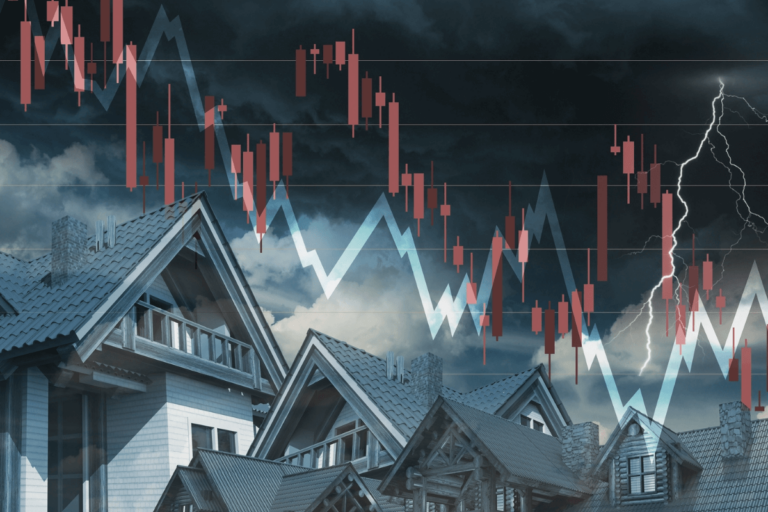5 Trends to Expect in the US Housing Market

As an outcome of the COVID pandemic, several aspects of the housing market were affected in the US. Mortgage rates plunged to record lows, and the price of homes increased dramatically. As a result, Americans bought larger homes in record numbers.
In 2022, the housing market could cool off significantly following record-breaking conditions in 2020 and 2021. Here we examine the top 5 trends that we believe will affect the real estate industry in 2022.
People were relocating to suburbs from big cities even before COVID. COVID-19, however, accelerated this process. People could do jobs remotely in many instances, increasing a trend away from inner-city living.
Many other factors are likely to affect the real estate sector during the following year. So read on!
Mortgage Rates to Increase
It is not only gas prices that are rising. Although the war in Ukraine briefly lowered interest rates, other factors are pushing the rates higher. According to the Federal Reserve, a rate hike is imminent.
In January of last year, mortgage experts had predicted that rates would continue to rise from the all-time low of 2.93 percent. They plunged in 2020, but this year, almost everyone worldwide is expecting the rates to increase.
Mortgage rates are on the rise due to consumer spending and rising inflation, as per Sam Khater, chief economist of Freddie Mac. Undoubtedly, record-low mortgage rates contributed to the housing boom of 2021 and 2020, and many believe it contributed the most to the growth.
However, interest rates will rise this year. According to the Mortgage Bankers Association, a 30-year mortgage will have an average interest rate of 4 percent by 2022. What impact will that have on home prices and sales? There is no definitive answer to this question. However, there have past instances when housing markets grew, even when interest rates rose.
Americans continued to purchase homes despite mortgage rates soaring to 18% in the 1980s. Rates of 8% to 9% were typical in the 1990s, and Americans continued to purchase homes in record numbers. At the housing bubble’s height, mortgage rates were much higher than they are now.
Decelerating Price Appreciation
Since March 2020, the pandemic’s start, the median price of homes sold by Realtors has increased by 29 percent, from $280,700 to $362,800. The price has remained steady at $350,000 since then.
Lawrence Yun, the National Association of Realtors’ chief economist, predicts a temporary drop in home sales after a spectacular year for housing in 2021 and 2020. The association forecasts that home prices will appreciate by 2.8 % in 2022, compared to 14.7% in 2021.
This slowdown has many benefits. If appreciation slows, Americans won’t have to fear that their home values will outpace their future pay raises. Many first home buyers will feel relieved. Furthermore, there will be fewer bidding wars among buyers.
As per a realtor in North Carolina, it’s easier for buyers when the situation isn’t so chaotic. A more tranquil real estate market is welcomed by most in the industry. Nevertheless, few anticipate a decrease in prices.
Many in the sector believe that prices cannot continue to increase by 20% per year. The situation is unsustainable, but at the same time, there is no argument that prices will decline, and there does not seem anything that will cause the market to shift dramatically.
Reasonable Housing to Remain Out of Reach for Many
The COVID pandemic has worsened housing affordability by taking money from Americans’ paychecks and causing a housing shortage. As a countertrend to the crisis, mortgage rates have sunk to record lows, softening the blow for buyers.
The National Home Association expects the average price of new and existing homes sold in the United States to rise from $320,000 in the third quarter of 2021 to $355,000 by the summer of 2022.
The skyrocketing housing costs make it increasingly difficult for young, first-time buyers to purchase a home. During the third quarter of 2021, only 56.6% of homes sold were inexpensive for typical-income families. California is experiencing a particularly acute affordability squeeze, where home prices have skyrocketed far beyond the means of most workers.
Declining Rental Market
Among the principal causes of the decline in the rental market in big cities was the shift of people from cities to suburbs. In the future, rental properties will continue to trend downward in the larger cities, as those who can afford it will likely buy a home, while those who cannot save money or pay their rent will opt for other alternatives.
Many young professionals moved back into their parents’ homes last year after giving up their apartments. According to research by PEW, young adults aged 18 to 29 lived with their parents more often in 2021 than they had in the past.
Due to the migration of residents away from big cities, apartment vacancies have reached their highest levels since 2010, and rental prices have declined. However, even though the number of vacancies on the rental market in large metropolitan areas is increasing, the demand for rental properties has increased in many mid-sized and smaller cities due to higher supply than demand.
Real estate investment opportunities have arisen due to the rental market’s downturn. As a result, investors can buy rental properties that need repairs to prepare for when renters return to major cities following the end of the COVID pandemic.
Investors can also make the most of vacated commercial properties in 2022, including retail properties and vacant hotels, by converting them into residential units.
Putin’s Decision to Wage War Could be a Blow to the US Housing Market
Ukraine’s crisis is having a ripple effect on the global economy. The housing market in the United States is not immune to the impact. Can United States homebuyers anticipate similar shocks to those that have roiled global financial markets?
In the immediate aftermath of Russia’s invasion of Ukraine last week, markets worldwide were sparked into a violent frenzy, resulting in increased insecurity and the possibility of reduced consumer spending. However, it remains to be seen whether the conflict in Ukraine will increase the home prices in the United States.
Prospective homebuyers have faced many challenges in 2022’s early months – just as they did throughout 2021. The combination of low inventory and record demand has caused prices to increase. Some key ingredients for new home construction, like timber, are reaching record prices, and experts predict a 22% increase in home prices this spring.
Since news of the Ukrainian invasion broke, energy prices have risen sharply. On both the demand and supply sides, energy prices are certainly a harbinger of future changes in the US housing market.
If the conflict continues and the energy prices remain high for a long time, that could hurt the housing market. The cost of energy has skyrocketed since the invasion began.
One week after the conflict started, oil reached over $110 per barrel, making essential services like home heating or driving significantly more expensive for the average person.
The threat of rising energy prices may make consumers even less likely to make large purchases in an economy where consumer sentiment has already plummeted to record lows. American consumers are likely to experience higher transportation and commuting costs due to higher gasoline prices.
The increase in gas prices coincides with higher inflation overall, which means that families are paying more for clothing, food, health care, and vehicles. Increasing energy costs make it harder for many families to meet their financial obligations.
Most experts believe that the demand for single-family homes will remain strong as long as mortgage rates remain low. The impact of the Russia-Ukraine conflict is unpredictable as it could affect the housing market in several ways.
It will be interesting to see which of these factors will affect the housing market in the coming months.
Disclosure: The author is not a licensed or registered investment adviser or broker/dealer. They are not providing you with individual investment advice. Please consult with a licensed investment professional before you invest your money.
Tim Thomas has a real estate portfolio.
This was produced by Tim Thomas / Timothy Thomas Limited






